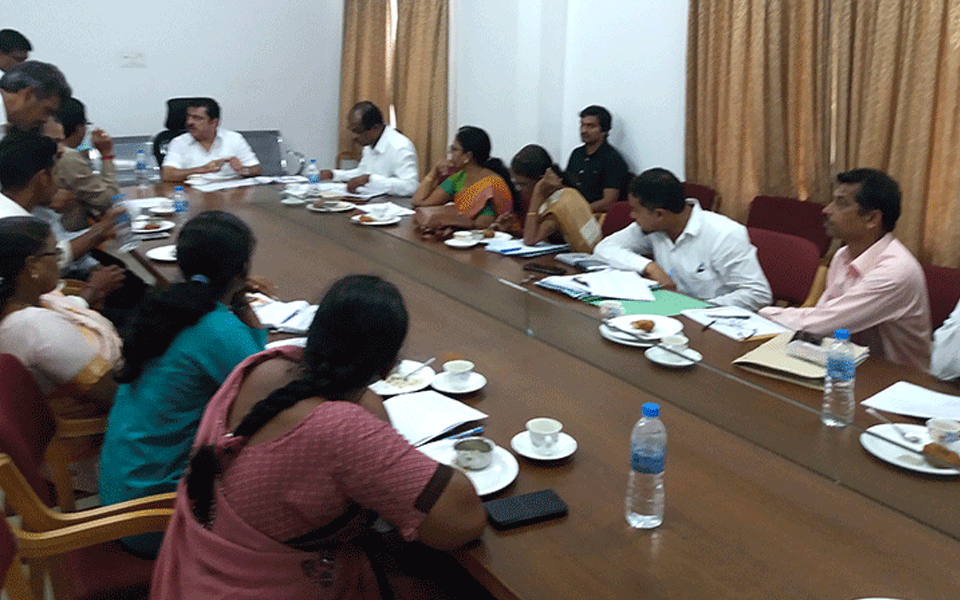Mangaluru, November 16: Food and Civil Supplies and Minorities and Wakf Minister Zameer Ahmed Khan said that land would be identified at Adyar on the outskirts of the city and Hajj Bhavan would be constructed shortly.
Reviewing the works of his departments at the Circuit House here on Friday, the Minister said that the land would be surveyed at Adyar first and Hajj Bhavan would be constructed after acquiring the land, he added.
Due to network problem in 16 fair price shops, Point of Sale (POS) system was not installed due to which, ration was being distributed through coupon system. The problem would be discussed in the government level and solved soon. The owners of fair price shops have installed computers, printers, laptops, POS and other instruments at their own cost and distributing the ration. He has received complaints from the beneficiaries that some fair price shop owners have been denying in issuing cards under the pretext of network problem. The government was planning to have agreement with the private companies to solve network problem, he assured.
The department has the target of distributing gas connections to 1,586 beneficiaries and in the first phase, the department has released funds to the agency to provide gas connection to 1,349 beneficiaries. Total 824 stoves were distributed and gas connection was given to 581 beneficiaries as of now, the officers said.
Responding to it, the minister directed the officials to reach the target under Anila Bhagya scheme by November and the remaining 768 gas connections should be provided immediately.
Those who have applied for inclusion of their names or corrections were not being given the ration cards on time. But the officers drew the attention of the Minister about non-availability of the cards. The Minister said that he would discuss the issue with the department secretary. Total 7,009 applications were pending for issuing new cards and eligible beneficiaries should be identified and issued the cards, he directed.
When officers said that there was less demand for tur dal in the district and more demand for moong dal, the minister said that moong dal would be supplied as per the local demand. He directed the officials to take legal action against those who cheat consumers in weight and measurement.
Scarcity of staff
The district has the scarcity of staff. Among sanctioned posts, nine posts were vacant due to which, programmes were not being implemented effectively. The Minister assured of solving the problem.
Department officer Srinivasaiah, Minority Welfare department officer Usman, Wakf district officer Abubakar, Minority department district manager Sridhar Bhandari and others were present.

Let the Truth be known. If you read VB and like VB, please be a VB Supporter and Help us deliver the Truth to one and all.
Dubai/Abu Dhabi: Residents and visitors across the United Arab Emirates received a fresh emergency alert on their mobile phones stating that the situation in the country is currently safe.
The message, issued by the Ministry of Interior (MOI), thanked people for their cooperation and reassured them that conditions were stable.
“Thank you for your cooperation. We reassure you that the situation is currently safe. You may resume your normal activities while continuing to remain cautious and take the necessary precautions, and to follow official instructions. (MOI),” the alert read.
The notification was sent in both Arabic and English through the country’s emergency alert system.
The advisory comes after earlier alerts warning of potential missile threats amid rising regional tensions. Authorities have urged the public to stay cautious and follow official guidance.





